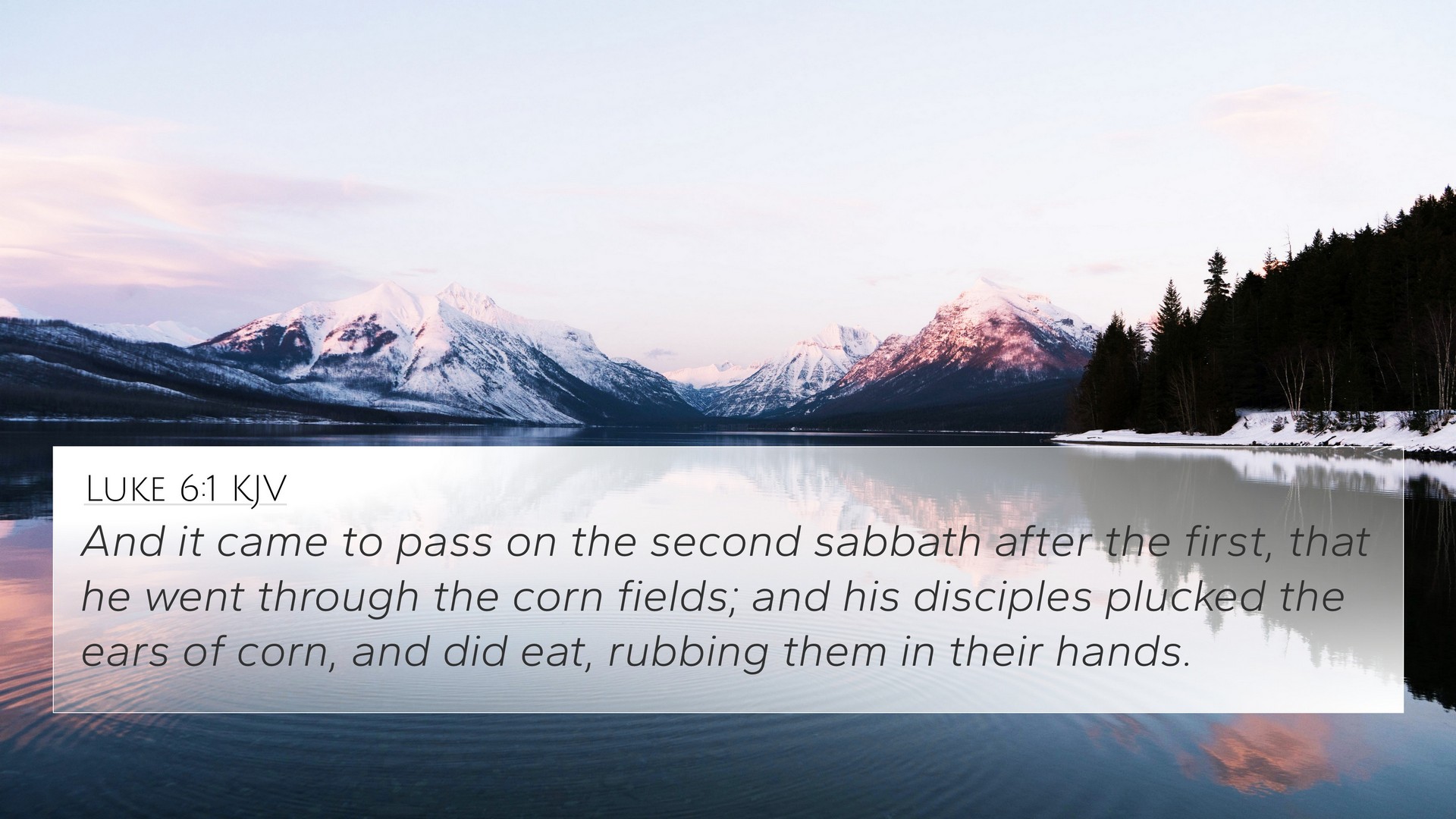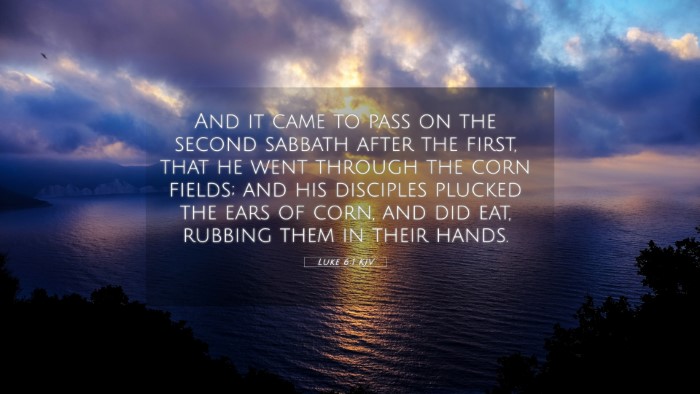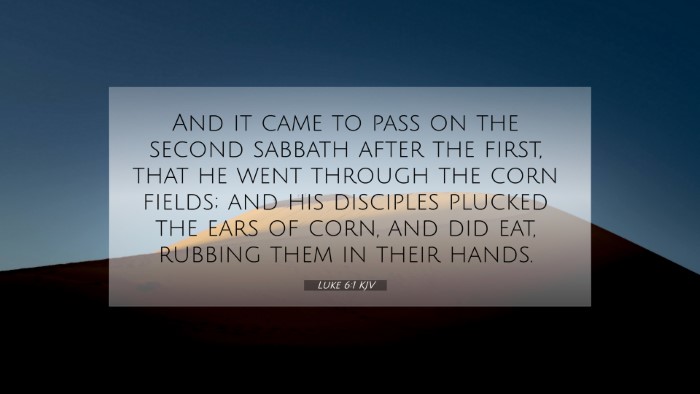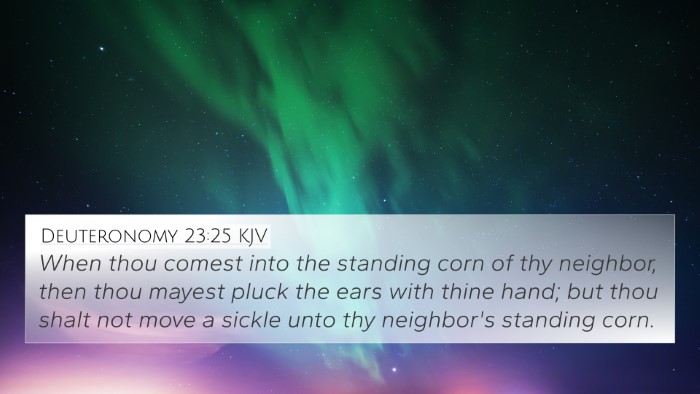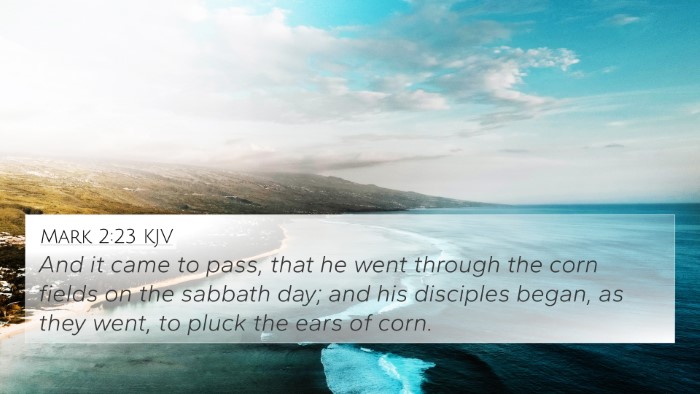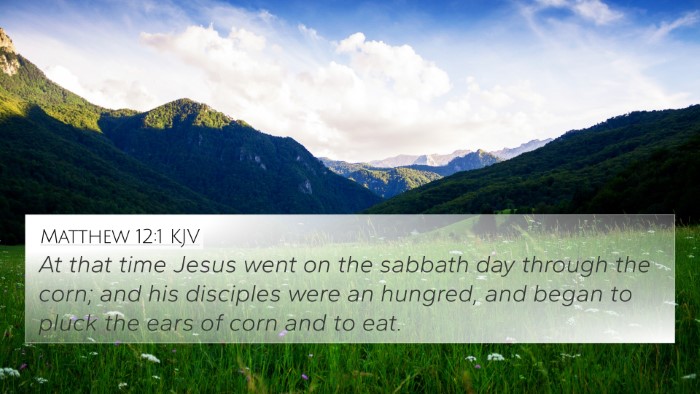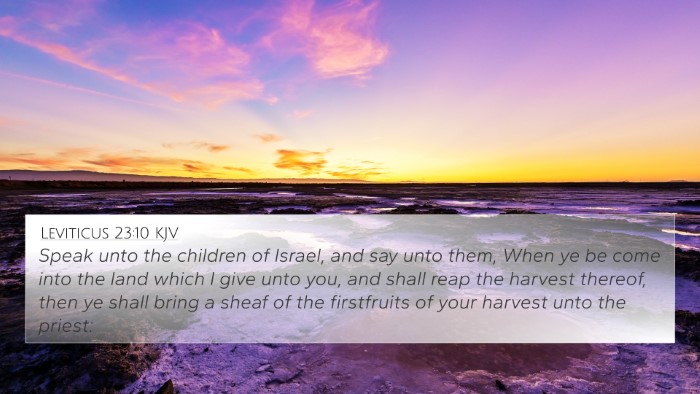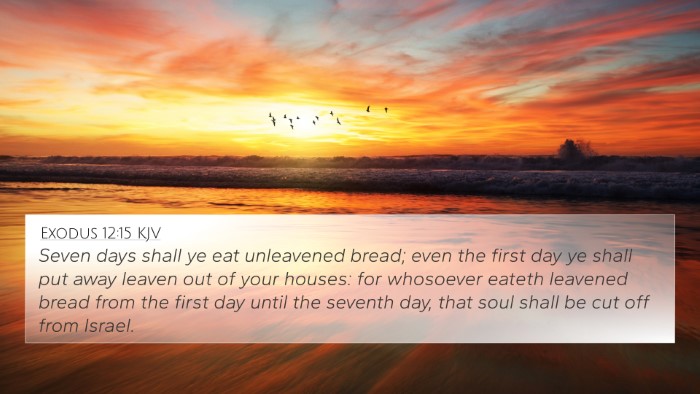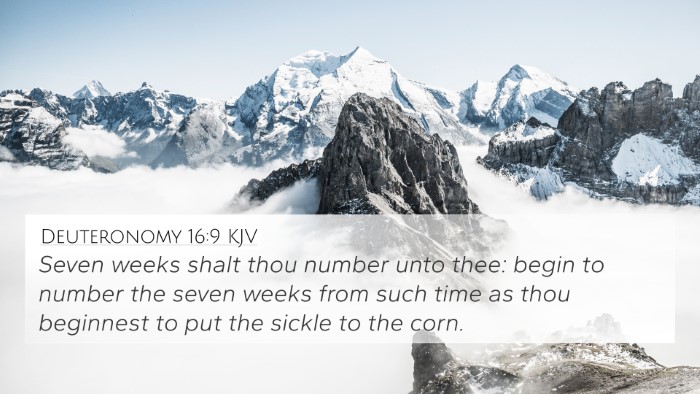Understanding Luke 6:1
Luke 6:1 states: "Now it came to pass on the second Sabbath after the first, that he went through the cornfields; and his disciples plucked the ears of corn, and did eat, rubbing them in their hands." This verse introduces a significant moment in the ministry of Jesus, illustrating themes of legality, necessity, and mercy.
Summary of Interpretations
- Matthew Henry's Commentary:
Henry emphasizes the context of the Sabbath, noting the traditions and laws surrounding its observance. He suggests that Jesus challenges the rigid interpretation of the law as he and his disciples partake in the corn, illustrating Jesus's authority over the Sabbath and advocating for the spirit of the law rather than mere legalistic adherence.
- Albert Barnes' Notes:
Barnes stresses that this incident reveals the nature of Christ's ministry, which often went against the prevailing norms of the Pharisees. He points out that the disciples’ actions, though seen as transgressive, highlight their need for sustenance and serve as an illustration of Jesus's understanding of human needs over ceremonial strictness.
- Adam Clarke's Commentary:
Clarke delves into the specifics of the "second Sabbath," explaining its significance while underscoring that the act of the disciples was lawful according to Deuteronomy 23:25. He also reflects on the potential for misunderstanding Jesus's actions and how they serve as a precursor to his teachings on the nature of true worship and rest.
Key Themes:
- Sabbath Observance: This narrative examines the intersection of human necessity against the backdrop of religious law.
- Mercy Over Sacrifice: Jesus's actions illustrate a pivotal teaching that God's desire for mercy supersedes ritualistic observance.
- Authority of Christ: Through this act, Jesus asserts his authority to interpret the law, emphasizing a relational understanding of God’s commands.
Cross-References
Luke 6:1 can be linked with several other scriptures that enhance the understanding of this event:
- Matthew 12:1-8: A parallel account illustrating the same incident where Jesus teaches about mercy.
- Mark 2:23-28: Mark's perspective emphasizes the principles of the Sabbath and the role of the Son of Man.
- Deuteronomy 23:25: Establishes the law allowing hungry travelers to eat from fields.
- Isaiah 58:13-14: A prophetic call to honor the Sabbath in a manner that pleases God.
- John 5:16-18: Highlights Jesus's confrontations with the Jewish leaders regarding his Sabbath healings.
- Romans 14:5-6: Paul discusses differing views on holy days and dietary regulations.
- Galatians 5:1: Encouragement for freedom in Christ which may relate to the legalistic interpretations of law.
Connections Between Bible Verses
By examining Luke 6:1 alongside the provided references, one can perform a comparative Bible verse analysis that highlights the relationships and thematic connections within scripture:
- Bible verses that support [specific Bible verse]: Each parallel scripture reinforces the overarching message of grace over law.
- Bible cross-reference study: Utilizing a Bible concordance can aid in unveiling additional insights into this theme.
- Inter-Biblical dialogue: The discussions presented in these passages reveal a robust dialogue about the purpose of the law and the heart of God toward humanity.
Tools for Bible Cross-Referencing
To deeply understand Biblical texts and their connections, consider employing various resources:
- Bible Cross-Reference Guide: Use this to explore how verses interlink thematically and contextually.
- Bible Reference Resources: Look for topical Bibles that offer insights into related passages that echo similar truths.
- Cross-Referencing Bible Study Methods: Familiarize yourself with practical methods for identifying themes within scripture.
Conclusion
In summary, Luke 6:1 serves as a profound lesson regarding the nature of the Sabbath and Jesus's interpretation of the law. The insights garnered from public domain commentaries provide a multi-faceted understanding that invites believers to explore the balance of mercy, necessity, and divine authority. This exploration is further enhanced through engaging in scriptural cross-referencing and thematic analysis, allowing for a richer understanding of God's word.
